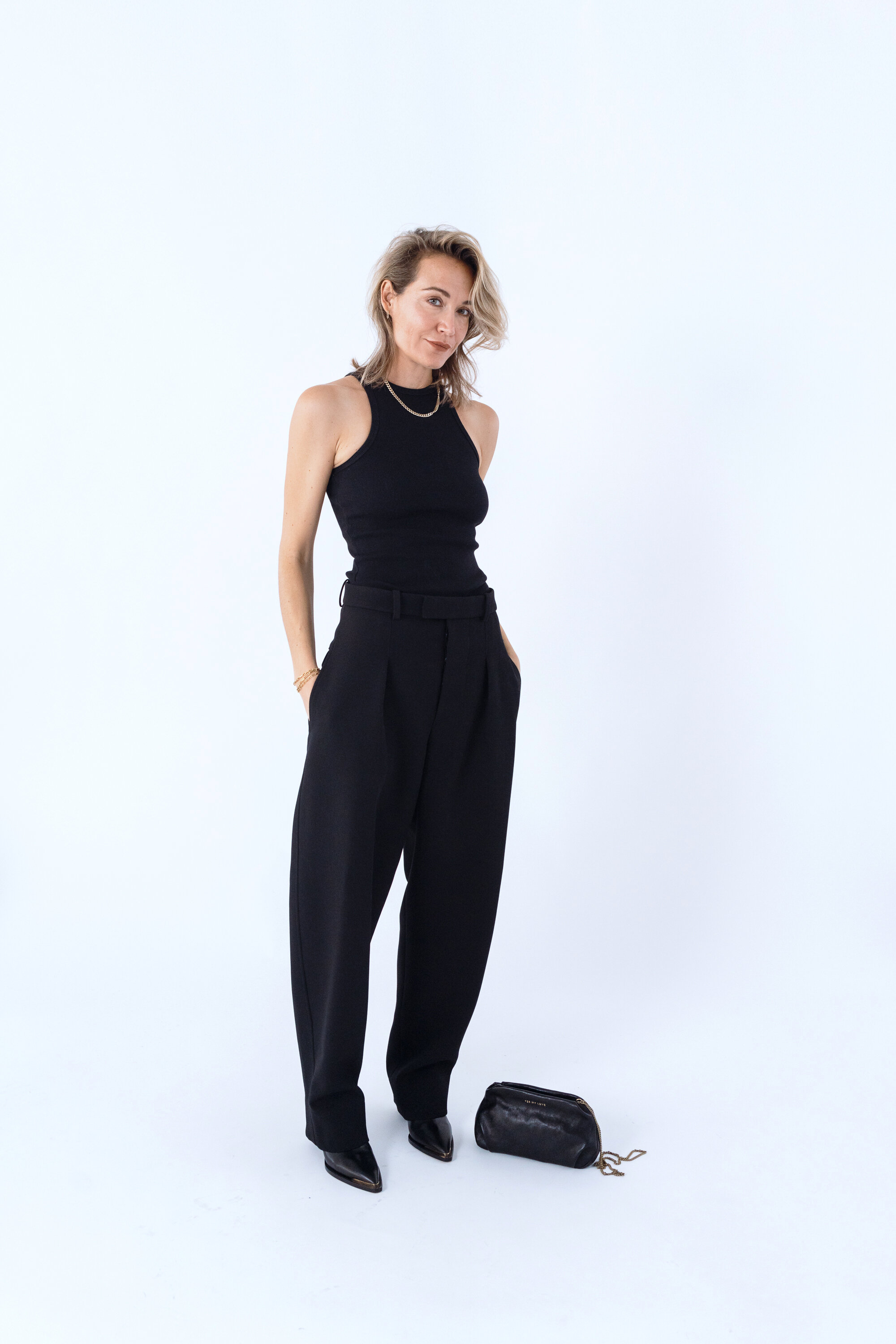INTERVIEW #141 LENA NUSSBAUM-BARTH
Name: Lena Hannah Nussbaum-Barth
Occupation: Founder of YES MY LOVE
Based in: Berlin, Germany
Website: www.yesmylove.com
Instagram: @lenanussbaum and @yesmyloveofficial
Hi Lena, welcome to A Sustainable Closet, can you please tell us more about yourself?
I was born and raised in Mülheim an der Ruhr. I studied fashion journalism and marketing in Düsseldorf and business administration later in Berlin. After my studies, I lived in New York where I worked for Hugo Boss and spent a few months in London and Paris to gain ground in the fashion scene. After living in this fashion metropolis I came to Berlin to work in a fashion e-commerce start-up where I stayed for 4 years. Afterwards, I was determined to build my own business. This dream came to life in 2016 when I found YES MY LOVE KIDS. Back then the main focus of YES MY LOVE was on kids’ clothes, now we mainly have clothing and accessories for women.
What’s your relationship with clothes, when did you get interested in fashion?
I guess you can say: Fashion has always been my passion! As far as I can remember I wanted to work in the fashion industry. I have always been interested in designers and the stories behind fashion brands. I am also a really creative person and love to style outfits. From a really young age, I developed my own style which I use to express myself!
How would you describe your style?
I would say my style is timeless and classy with a touch of rock’n’roll and boho. I am not really into colour and mostly wear neutral-coloured outfits.
How would you describe your closet?
To be honest: most of the time it is quite messy. But I do find my way around, so it is more of an organised chaos.
You have founded your own brand Yes My Love Official, can you please tell us more about that journey: why did you start it and what have been the challenges?
I have always got quite a few questions about my style and where I buy my clothes from, from friends and family and through social media, so the idea came to mind to start my own brand and create my own clothes. When I finished my studies I did not have the specific goal to found my own brand, but through time and experience, I liked the idea more and more. The main challenges have been the financial parts. The process from designing a piece to actually holding the final version in your hands is long, complex and obviously expensive. Besides that, it was very difficult to start a brand from the ground on. I needed to find answers to the most basic questions such as where to produce or how to create and design an online shop. And last but not least I am always very busy with daily to-do’s so I sometimes don't have time for the creative part of my job like designing new clothes. It's important to find a rhythm between it all.
What is the most difficult and the most rewarding part about having your own brand?
The most difficult part is that you always need to stay up to date. You constantly have to develop and evolve, it's an ongoing learning process. It can get very exhausting at times when there is always something to do. The most rewarding part is the feedback from our customers. Knowing that people like my brand and designs and seeing them actually wearing them is incredible and reassures me that the hard work I put into it pays off in the end.
What are the obstacles to having an ethical brand, what are your sustainability dilemmas and challenges and what are you most proud of?
It is very time-consuming and expensive to find yarn and material in general which is sustainable and lasting. Besides that, it's difficult to create a completely sustainable supply chain. I am most proud of our leather goods, especially the Lena Boot. It is completely recyclable due to the chrome-free leather, reel wooden heels and water-based glue.
What do you believe needs to change in the fashion industry to make it more sustainable?
Consumers need to be more curious about the story of a product, and about the brands they regularly buy their clothes from. I think when people start to read about the fashion industry and gain more information they will eventually be willing to pay more for sustainable clothes. They will be more aware of the impact of their decisions and not so easily fooled by fast fashion brands or new trends. For example, we use recycled leather from the food industry to produce our leather goods. Our products are sustainable without being vegan. We don't use vegan leather because the water consumption while producing it is really high. There is a lot of misinformation and half-knowledge which is why it is so significant to educate yourself.
What can one do that seeks to create a more sustainable closet?
Before buying a product you should read about the materials it contains and the country of manufacture. Both pieces of information are easily found on the care label. It's important to consume more mindfully and foresighted. Can you see yourself wearing the clothes a year from now or not? When it comes to trendy styles this question is even more important! Also if you don't like a piece of clothing anymore don't throw it away. Rather sell it or give it to charity.





